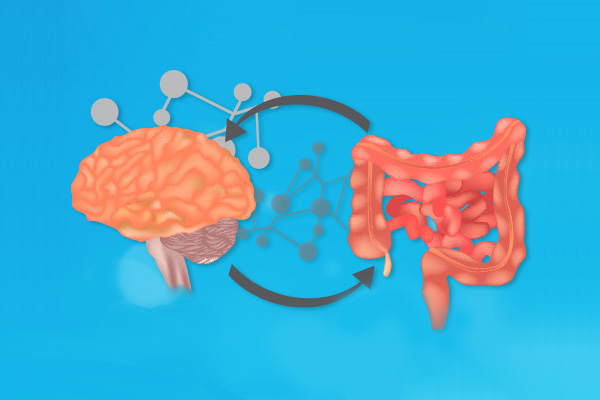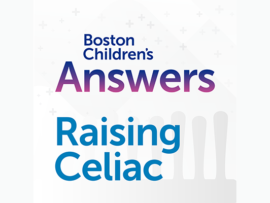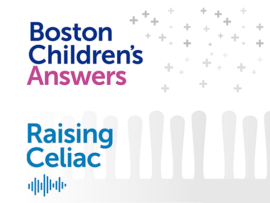LIVE VIRTUAL: The Brain-Gut Connection: Evidence-Based Psychological Strategies for Treatment of Gastrointestinal Symptoms (February 26-27-28, 2025)
$100.00 – $300.00
Live Virtual Event
Join us February 26-28, 2025
Using lecture, clinical examples, and skill-building activities this live virtual workshop will equip clinicians to work with clients to improve quality of life and reduce gastrointestinal symptoms. Participants may register for the Beginner/Intermediate (Days 1 & 2) and/or Advanced (Day 3) GI Psychology Workshop.
Description
Many pediatric patients presenting to community mental health providers experience gastrointestinal symptoms including chronic pain, nausea, irritable bowel syndrome (IBS), inflammatory bowel disease (e.g. Crohn’s Disease, Ulcerative Colitis), and avoidant and restrictive feeding disorders (ARFID). Children, adolescents, and young adults with chronic GI problems often miss school, have greater healthcare utilization, and have parents who miss more workdays; they also have higher rates of depression and anxiety than youth with other chronic diseases. Many gastroenterologists routinely refer patients for mental health services, and while mental health providers may be well-versed in treating mental health concerns they may be less familiar with the application of psychological interventions for specific GI symptoms.
Using lecture, clinical examples, and skill-building activities this live virtual workshop will equip clinicians to work with clients to improve quality of life and reduce gastrointestinal symptoms. Participants may register for the Beginner/Intermediate (Days 1 & 2) and/or Advanced (Day 3) GI Psychology Workshop.
CEs are available for live or watching the recording. Please note that the recordings will only be available for 6 weeks after the live event, so participants who are unable to attend live should plan accordingly to access course material.
At the conclusion of this educational program, learners will be able to:
- Understand GI physiology and basic pathophysiology of Disorders of the Brain-Gut Interaction (DGBI)
- Recognize commonly diagnosed pediatric gastrointestinal conditions and describe the biopsychosocial conceptualization and treatment model for these disorders
- Recall specific GI-focused questions that can be incorporated into the psychological assessment process and the language/metaphors to utilize when discussing the biopsychosocial treatment approach
- Identify evidence-based psychological treatment strategies for the management of pain and other GI-related symptoms
- Apply evidence-based psychological treatments for the management of GI-related symptoms
- Recognize feeding behaviors and difficulties across developmental stages and differentiate picky eating versus avoidant/restrictive food intake disorder (ARFID) versus other eating disorders
 In support of improving patient care, Boston Children’s Hospital is jointly accredited by the Accreditation Council for Continuing Medical Education (ACCME), the Accreditation Council for Pharmacy Education (ACPE), and the American Nurses Credentialing Center (ANCC), to provide continuing education for the healthcare team.
In support of improving patient care, Boston Children’s Hospital is jointly accredited by the Accreditation Council for Continuing Medical Education (ACCME), the Accreditation Council for Pharmacy Education (ACPE), and the American Nurses Credentialing Center (ANCC), to provide continuing education for the healthcare team.
Social Worker
As a Jointly Accredited Organization, Boston Children’s Hospital is approved to offer social work continuing education by the Association of Social Work Boards (ASWB) Approved Continuing Education (ACE) program. Organizations, not individual courses, are approved under this program. State and provincial regulatory boards have the final authority to determine whether an individual course may be accepted for continuing education credit. Boston Children’s Hospital maintains responsibility for this course. Social workers completing this course receive 18.0 ACE CE continuing education credits.
Psychologist
Continuing Education (CE) credits for psychologists are provided through the co-sponsorship of the American Psychological Association (APA) Office of Continuing Education in Psychology (CEP). The APA CEP Office maintains responsibly for the content of the programs. This course has been approved for 18.0 continuing education credits.
Disclosure Policy
Boston Children’s Hospital adheres to all ACCME Essential Areas, Standards, and Policies. It is Boston Children’s policy that those who have influenced the content of a CE activity (e.g. planners, faculty, authors, reviewers and others) disclose all relevant financial relationships with commercial entities so that Boston Children’s may identify and resolve any conflicts of interest prior to the activity. These disclosures will be provided in the activity materials along with disclosure of any commercial support received for the activity. Additionally, faculty members have been instructed to disclose any limitations of data and unlabeled or investigational uses of products during their presentations.
Disclosure Statement
The following planners, speakers, and content reviewers, on behalf of themselves, have reported the following relevant financial relationships with any entity producing, marketing, reselling, or distributing health care goods or services consumed by, or used on patients:
Additional information
| Credit Type | |
|---|---|
| Duration | |
| Format | |
| Topic | Behavioral Health, Gastroenterology/nutrition, Psychiatry, Psychology, Social Work |
| Package | Days 1 & 2: Beginner/Intermediate ONLY, Day 3: Advanced Topics ONLY, Days 1, 2 & 3: Beginner/Intermediate + Advanced Topics, Trainee: Beginner/Intermediate ONLY, Trainee: Beginner/Intermediate + Advanced |
Faculty
Schedule
|
Wednesday, February 26, 2025 Schedule |
Thursday, February 27, 2025 Schedule |
Friday, February 28, 2025 Schedule |
|---|---|---|
| Welcome What is GI Psychology? 8 AM – 8:15 AM |
Assessment & Case Conceptualization: Part 1 (DGBIs, IBD, Celiac) 8 AM – 9:15 AM |
Assessment & Case Conceptualization: Part 1 (DGBIs, IBD, Celiac) 8 AM – 9:30 AM |
| Introduction to the Gastrointestinal System: Physiology and Neurotransmitters 8:15 AM – 9:15 AM |
Break 9:15 AM – 9:30 AM |
Break 9:30 AM – 9:40 AM |
| Break 9:15 AM – 9:25 AM |
Assessment & Case Conceptualization: Part 2 (ARFID, Feeding Disorders) 9:30 AM – 10:45 AM |
Deeper Dive: Relaxation and Mindfulness Skills for the Annoyed Adolescent or Young Adult 9:40 AM – 10:40 AM |
Introduction to GI Psychology – What are we treating?
9:25 AM – 10:25 AM |
Break 10:45 AM – 11 AM |
Break 10:40 AM – 10:50 AM |
| Break 10:25AM – 10:40AM |
Feedback, Treatment Planning, and Implementation 11 AM – 12 PM |
Deeper Dive: Encopresis driven by Anxiety Encopresis driven by ADHD Challenges of communication with non-GI psych providers School challenges |
| Explaining the Brain-Gut Connection: Language and Metaphors to Shape Treatment and Build the Alliance 10:40 AM – 12 PM |
Lunch 12 PM – 1 PM |
Lunch 12 PM – 1 PM |
| Lunch 12 PM – 1 PM |
Implementing Interventions for GI Disorders Part 1 (DGBIs, Rumination, Encopresis) 1 PM – 2 PM |
Deeper Dive: ARFID & Eating Disorders 1 PM – 2 PM |
| Assessment & Case Conceptualization 1 PM – 2:15 PM |
Break 2 PM – 2:15 PM |
Resistance to Exposures & the Rehab model – urgency, toileting, nausea, feeding Resistance from patients, parents, |
| Break 2:15 PM – 2:25 PM |
Implementing Interventions for GI Part 2 (ARFID, Feeding Disorders) 2:15 PM – 3:15 PM |
Q&A 3:10 PM – 3:20 PM |
| Assessment & Case Conceptualization (cont.) 2:25 PM – 3:25 PM |
Q&A 3:15 PM – 3:45 PM |
|
| Q&A 3:25 PM – 3:35 PM |







 Samuel Nurko, MD, MPH
Samuel Nurko, MD, MPH


